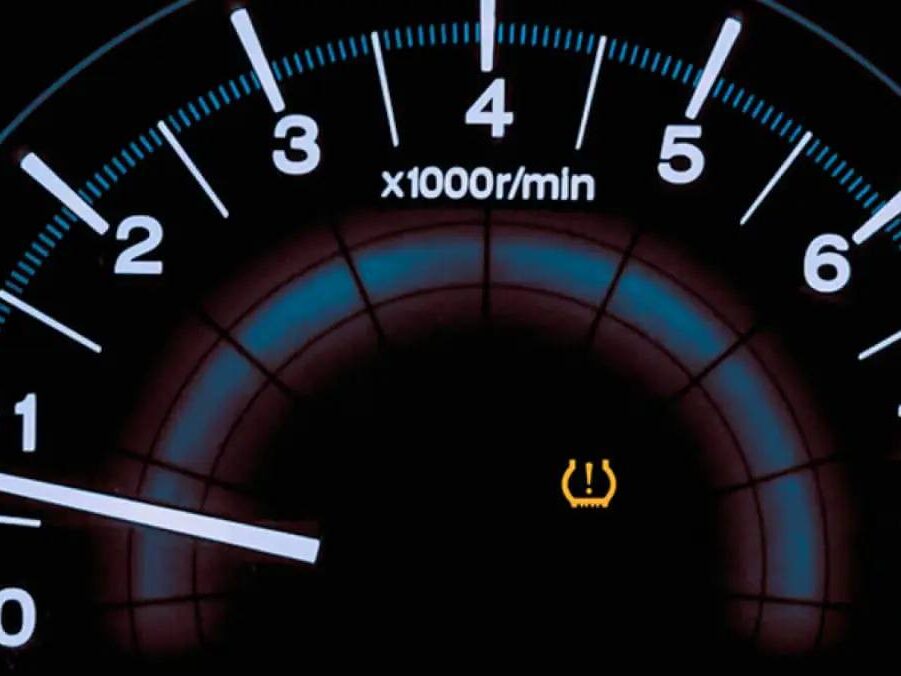C0765 0x4750 and C0750 0x4765 are diagnostic trouble codes indicating issues with the tire pressure monitoring system (TPMS), specifically with the left and right rear tire pressure sensors, respectively. Addressing these codes through regular maintenance and timely inspections is essential for ensuring your vehicle’s safety and performance.
Keeping your vehicle in optimal condition is crucial for safety and performance. Encountering error codes like C0765 0x4750 and C0750 0x4765 can be alarming, but understanding these codes and knowing how to address them can help you maintain your car’s health. This comprehensive guide covers everything you need to know about these error codes.
What Are C0765 0x4750 and C0750 0x4765 Codes?
C0765 0x4750 and C0750 0x4765 are diagnostic trouble codes (DTCs) related to your vehicle’s electronic control system. These codes typically indicate issues with the tire pressure monitoring system (TPMS).
- C0765 0x4750: This code suggests a malfunction in the left rear tire pressure sensor.
- C0750 0x4765: This code points to a malfunction in the right rear tire pressure sensor.
Understanding the Tire Pressure Monitoring System (TPMS)

The TPMS is a safety feature in modern vehicles designed to monitor the air pressure inside pneumatic tires. When the air pressure in one or more tires drops below the recommended level, the system triggers a warning to alert the driver. This system helps prevent accidents caused by under-inflated tires, which can lead to poor vehicle handling, reduced fuel efficiency, and increased tire wear.
Importance of Addressing TPMS Codes
Ignoring TPMS codes like C0765 0x4750 and C0750 0x4765 can have serious consequences. Driving with improperly inflated tires can compromise your safety, as it affects the vehicle’s handling and braking performance. Additionally, it can lead to premature tire wear and increased fuel consumption. Addressing these codes promptly ensures your vehicle operates efficiently and safely.
How Do C0765 0x4750 and C0750 0x4765 Codes Show Up?
These error codes usually appear on your vehicle’s onboard diagnostic system. They can be detected through a diagnostic scan tool, which mechanics use to read DTCs stored in your car’s computer. When these codes are triggered, you might see a warning light on your dashboard, typically the TPMS light.
Diagnostic Scan Tools
To read and diagnose these codes, mechanics use advanced diagnostic scan tools. These tools connect to the vehicle’s onboard computer system and retrieve the stored error codes. By analyzing these codes, mechanics can determine the exact issue and recommend appropriate repairs.
Dashboard Warning Lights
When the TPMS detects an issue, it illuminates a warning light on your dashboard. This light typically looks like a cross-section of a tire with an exclamation point inside. If this light comes on, it’s essential to check your tire pressure immediately and address any issues to prevent further complications.
When Do C0765 0x4750 and C0750 0x4765 Codes Appear?
These codes appear when there is a problem with the tire pressure sensors. They can be triggered by:
- Low or high tire pressure
- Faulty tire pressure sensors
- Issues with the TPMS module
- Electrical problems such as damaged wiring or connectors
Common Scenarios for Code Appearance:
- Seasonal Temperature Changes: Rapid changes in temperature can affect tire pressure. Cold weather can cause tire pressure to drop, while hot weather can cause it to increase. These fluctuations can trigger TPMS codes.
- Tire Damage: Punctures, leaks, or other tire damage can cause a sudden drop in tire pressure, triggering the TPMS warning light and error codes.
- Sensor Battery Life: TPMS sensors have batteries that can fail over time. A dead sensor battery will prevent the system from accurately monitoring tire pressure, leading to error codes.
Also read: Aliza Barber – A Comprehensive Overview!
Symptoms Of C0765 0x4750 And C0750 0x4765 Code – Clear Indications!
Recognizing the symptoms of these codes can help you address issues promptly:
- Dashboard Warning Light: The TPMS light on your dashboard will illuminate.
- Inaccurate Tire Pressure Readings: Your vehicle might display incorrect tire pressure readings.
- Poor Vehicle Handling: Imbalanced tire pressure can affect handling and safety.
Detailed Symptoms:
- Dashboard Warning Light: The most immediate indication is the illumination of the TPMS warning light on your dashboard. This light alerts you to a potential issue with your tire pressure.
- Inaccurate Tire Pressure Readings: You might notice that the tire pressure readings on your vehicle’s display are inaccurate or fluctuating. This inconsistency can indicate a malfunctioning sensor.
- Poor Vehicle Handling: Driving with incorrect tire pressure can lead to poor handling, especially during turns or sudden stops. You might feel your vehicle pulling to one side or experiencing reduced stability.
Causes Of C0765 0x4750 And C0750 0x4765 Code:
Several factors can cause these error codes to appear:
- Faulty Tire Pressure Sensors: Sensors may fail due to age or damage.
- Incorrect Tire Pressure: Both underinflation and overinflation can trigger these codes.
- Damaged Wiring or Connectors: Electrical issues can prevent the TPMS from functioning correctly.
- TPMS Module Malfunction: The control module itself may have a fault.
In-Depth Causes
- Faulty Tire Pressure Sensors: Over time, tire pressure sensors can become damaged or wear out, leading to incorrect readings. Physical damage from road debris or corrosion can also affect sensor performance.
- Incorrect Tire Pressure: Consistently driving with tires that are overinflated or underinflated can strain the TPMS sensors, leading to false readings and triggering error codes.
- Damaged Wiring or Connectors: The TPMS relies on a network of wires and connectors to transmit data from the sensors to the onboard computer. Any damage to these components can disrupt communication and trigger error codes.
- TPMS Module Malfunction: The TPMS control module processes data from the sensors. If this module malfunctions, it can cause the system to misinterpret sensor readings, resulting in error codes.
Tips For Avoiding C0765 0x4750 And C0750 0x4765 Code:

Preventive measures can help you avoid these error codes:
- Regular Tire Pressure Checks: Maintain proper tire pressure by checking it monthly.
- Routine TPMS Inspection: Have your TPMS sensors checked regularly, especially before long trips.
- Avoid Harsh Conditions: Protect your sensors from harsh environmental conditions.
- Professional Maintenance: Ensure that any repairs or replacements are done by certified technicians.
Preventive Maintenance Tips:
- Regular Tire Pressure Checks: Use a reliable tire pressure gauge to check your tire pressure at least once a month. Ensure that your tires are inflated to the manufacturer’s recommended pressure levels.
- Routine TPMS Inspection: During regular vehicle maintenance, ask your mechanic to inspect the TPMS sensors for any signs of wear or damage. This proactive approach can help identify potential issues before they become serious problems.
- Avoid Harsh Conditions: Avoid driving on rough or uneven surfaces that can damage your tires and TPMS sensors. Additionally, try to protect your vehicle from extreme weather conditions, which can affect tire pressure.
- Professional Maintenance: If you notice any issues with your TPMS or tire pressure, seek professional help immediately. Certified technicians have the tools and expertise to diagnose and fix TPMS-related problems accurately.
FAQs:
1. What do C0765 0x4750 and C0750 0x4765 codes mean?
These codes are diagnostic trouble codes (DTCs) related to issues with the tire pressure monitoring system (TPMS), specifically indicating malfunctions in the left and right rear tire pressure sensors, respectively.
2. How can I diagnose and fix these codes?
You can diagnose these codes using a diagnostic scan tool to read the error codes from your vehicle’s onboard computer. Fixing them may involve checking tire pressure, inspecting or replacing faulty sensors, and ensuring proper electrical connections.
3. When should I seek professional help for these codes?
Seek professional help if you are unable to resolve the issue by checking tire pressure and resetting the TPMS. Persistent TPMS warning lights or recurring codes may require the expertise of a certified technician.
4. Do these codes affect my vehicle’s safety and performance?
Yes, driving with incorrect tire pressure can compromise your vehicle’s handling, braking performance, and fuel efficiency, leading to potential safety hazards.
5. Are there any preventive measures to avoid these codes?
Regularly check and maintain proper tire pressure, have your TPMS sensors inspected during routine maintenance, avoid driving on rough surfaces, and seek professional help for any TPMS issues
Conclusion:
Understanding and addressing C0765 0x4750 and C0750 0x4765 codes are vital for maintaining your vehicle’s safety and performance. Regular maintenance, timely inspections, and addressing issues as soon as they arise can help you keep your car running smoothly and avoid these error codes. By taking a proactive approach, you can ensure your car remains reliable and safe on the road.
Related Post:
- Also read: Pichuneter – Revolutionizing Your Experience!
- Also read: Ama77k – Unleash Power With Ama77k!
- Also read: Emşi – From Concept to Impact!



